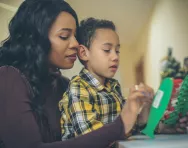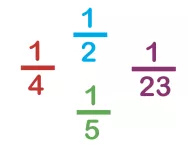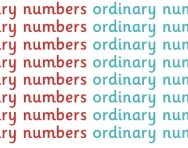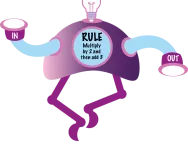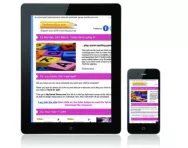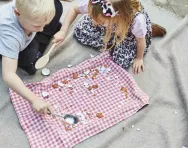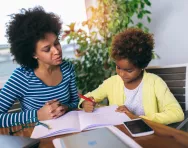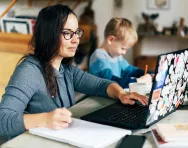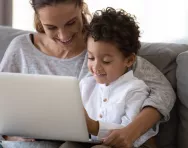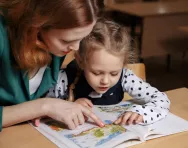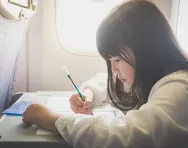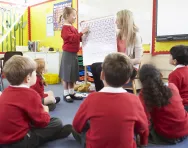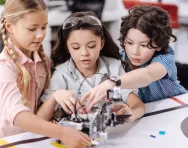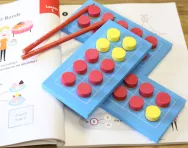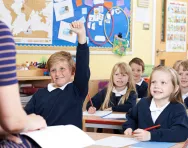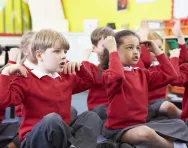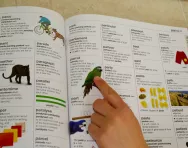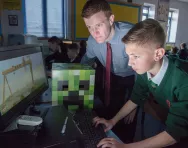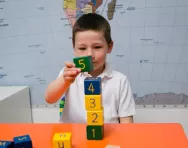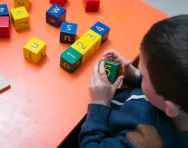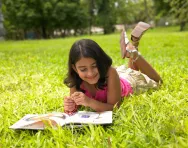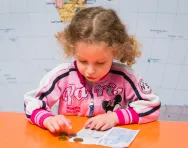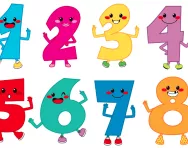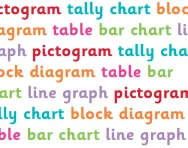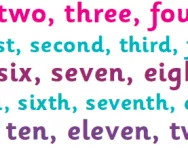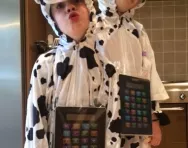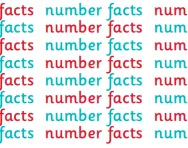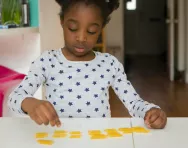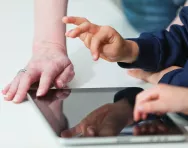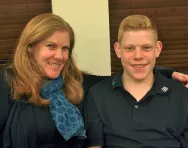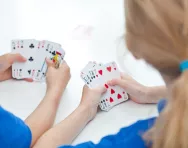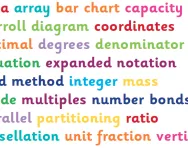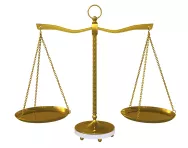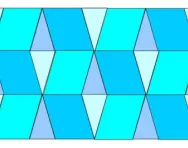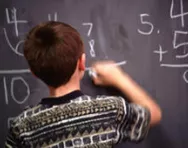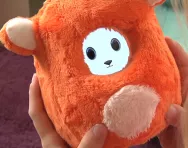24 fun toys for summer outdoor learning
It's well established that outdoor play is important for young learners and provides opportunities to develop physical, social, fine and gross motor skills. Our editor, Kate Morgan, has put together her top picks of outdoor toys. So get the kids outside, having fun and learning this summer. Let the games begin!
Tips and tricks for adding and subtracting numbers
Adding and subtracting numbers are the foundations of many mathematical operations and the ones that children will encounter first on their mathematical journey. Developing strong skills in these areas is crucial for primary-school children as it lays the groundwork for more complex maths concepts. In this article, we will explore a range of tips and tricks to help children excel in adding and subtracting numbers, broken down by year groups. Let's dive in!
What are fractions?
Fractions are a fundamental concept in primary maths, and they're all about sharing and dividing. Whether it's dividing a pizza into equal slices or sharing a bag of sweets between friends, fractions are a part of everyday life.
What are ordinary numbers?
Ordinary numbers, also known as counting numbers or natural numbers, are the foundation of mathematics. They're the numbers we use every day to count objects, tell the time, measure distances and much more.
What is a function machine?
Function machines are versatile tools in the teaching of mathematics, helping children understand and explore a wide range of mathematical concepts in a fun and engaging way. From basic operations in Key Stage 1 to more complex functions in Upper Key Stage 2, function machines can help play a crucial role in developing children's mathematical understanding and skills.
How the daily learning programme works
Whether you're taking your child out of school for a period, setting out on your home education journey or simply looking for extra activities to boost your child's learning, here's why the daily learning programme could be the right fit for you...
6 literacy and numeracy early learning games
Looking for some quick and easy learning activities to do with your child? In our extract from Five Minute Mum: Time For School, parent and best-selling author Daisy Upton (AKA Five Minute Mum) introduces you to simple, fun five-minute games to support Reception and Key Stage 1 children through their first years at school.
Best numeracy home education resources
Boost your child's confidence with all aspects of maths with our pick of the best home education numeracy resources: games, hands-on activities, video explanations, online lessons and downloadable workbooks, all available to access for free.
Best kids' activity packs to download
Top up the resource bank and keep the kids busy at home with reading, puzzles, crafting, science and other screen-free activities. They're all available to download for free and you won't need any special equipment, so head off the "I'm bored!" moans and buy yourself a few moments of peace so you can get some of your own work done!
Best YouTube channels for home education
Whether you want your child to learn about maths, geography, science or history, they'll be happy to watch a video about it – and these YouTube channels introduce topics through songs, animations, experiments, skits and riddles. From phonics for new readers to physics for keen scientists, these are the educational channels to subscribe to.
20 of the best live streams for kids
Help your primary-age child stay educated and entertained with our round-up of the best live streams for kids.
6 key areas for supporting your Reception child's learning
Primary teacher and parent Jennifer Smith shares six key areas and skills to work on at home with your Reception child, supporting what they're learning at school.
What is Numicon?
Here's how the primary school maths aid could help your child get to grips with counting, calculating and more.
Best activity books for children
Whether you're on the move or at home, a great activity book offers hours of screen-free learning and fun. Crosswords, maths challenges, mystery solving and code writing are all covered in our best activity books for kids picks. We can't guarantee you won't want to help out with the puzzling, though!
How maths teaching has changed since we were at school
Bus stops, the grid method, number bonds… Maths in today’s classroom can seem undecipherable. We look at how things have changed since we were kids.
How to future-proof your child's learning
Is your primary-school child getting the education they'll need to thrive in the 21st century? Jill Hodges, CEO and Founder of Fire Tech technology classes and camps for kids, describes the five skills young people will need, at work and in life, to make the most of our technological society's opportunities.
Best maths board games for children
Looking for an engaging way to practise maths concepts and skills? Try a mathematical board game! Whether your child is learning about times tables or place value, addition or square roots, there's a family-friendly board game to try. Get ready to roll the dice...
What is the concrete pictorial abstract approach in maths?
Concrete > pictorial > abstract (CPA) is a key feature of the Singapore maths mastery method now being taught in many primary schools. Mastery expert Kate Moore from Maths – No Problem! explains what's involved.
5 reasons kids hate maths – and what you can do about it
Does your child dread their maths lessons and end up in tears over homework? We take a look at what’s going wrong, and how you can help.
Best learning songs
Could songs and music help your child learn and remember English, maths and science facts? We pick our favourite learning songs, covering everything from adverbs and angles to onomatopoeia and photosynthesis.
Best reference books for children
Reference books and dictionaries offer us information that's accurate, well researched and beautifully presented and are invaluable when you're working on a homework project. From atlases to dictionaries and encyclopedias, we recommend some of the best English, maths, science, history and geography reference books for primary-school children.
Learning through Minecraft
You may think it’s just another video game – albeit a particularly addictive one – but Minecraft could have educational benefits too…
Hands-on maths: how it could help your child
Counting on fingers is an important maths tool in the early years of primary school, but is it something your child should outgrow? We look at the pros and cons of hands-on maths strategies.
Five fun maths activities to try at home
From board games to baking, we’ve rounded up the best ways to get your child practising their maths skills without even realising.
Best maths story books for children
Introduce ratio, pie charts, probability and even simplifying fractions to children with these brilliant maths story books, picture-book presentations of mathematical concepts that primary-school children will love.
Early maths skills: how your child learns about number
Counting may seem as easy as one-two-three to us, but it’s a tricky skill for your child to learn. We explain the stages of getting to grips with number in Reception and Year 1.
Best counting books for children
Counting and sequencing numbers correctly is a big part of early maths. We've picked some brilliant mathematical story books to help support your child's learning at home with vibrant illustrations, memorable characters and great narratives.
What is data handling?
From pictograms to line graphs, children learn a lot about collecting, organising and presenting data in primary school maths. We explain how data handling is taught in KS1 and KS2 and how you can help your child get to grips with basic statistics at home.
What are cardinal and ordinal numbers?
Reception and KS1 children all learn cardinal and ordinal numbers. We explain how your child will be taught to count and sequence numbers correctly and suggest practical, fun activities you can try at home to support your child's early mathematical learning.
No-sew mathematical costumes for Maths Week
A Maths Week costume?!? Don’t get your numbers in a twist! Non-crafty mum Phoebe Doyle’s on hand with some no-sew, no-stress ideas.
What are number facts?
Children are expected to memorise a number of different number facts in primary school, including number bonds to 20 and the multiplication and division facts for the twelve times tables. We explain what number facts your child will be taught when and suggest easy ways to support their learning at home.
10 brilliant primary-school maths aids
Children often learn faster if they are allowed to use practical equipment to support them. Primary teacher Angela Smith explains what maths aids your child might find in the classroom, and how you can also use them at home to help your child practise important numeracy skills with hands-on, practical activities.
Why games-based learning is great for your child
If you despair of the amount of time your child spends attached to their tablet, think again: games and apps are an important part of their learning journey, from pre-school to secondary school, and can help to improve problem-solving skills and communication, as well as boost motivation. Lucy Dimbylow finds out why gaming means learning in the twenty-first century.
"He had problems counting up in twos, fives and even tens"
Lillian Blundell, from Bath, describes her experience of the SEN and school system with her son Robbie, 16, who has dyscalculia, and shares her tips for other parents.
10 ways playing cards helps children with maths
Fancy a quick game of cards? Studies show cognitive benefits to play and card games teach children new strategies for using mathematical information, categorising patterns, sequencing and sorting. Last but not least, this is numeracy practice the whole family will enjoy (though things might get a bit competitive... beware!). Kate Yelland asked maths teachers and experts why sitting down with a pack of cards and a primary-school child is definitely playing your cards right.
Primary numeracy glossary for parents
From area to word problems, TheSchoolRun's primary-school numeracy glossary offers a complete guide to all the maths concepts children are taught in EYFS, KS1 and KS2. Brush up on your own mathematical skills, clear up homework confusion and understand exactly what your child is learning at school by reading our basic definitions (with links to more detailed explanations, teachers' tips and examples).
What are standard and non-standard units?
We explain what standard and non-standard units are and how non-standard units can help children understand the concept of weight before they master the skill of accurate measurement and converting units of measurement
What are tessellating shapes?
We explain what tessellating shapes are and why tessellation may be taught in primary school as part of learning about 2D shapes.
What is an estimate?
We explain how children are taught to make estimates to check whether their answers are correct and how this skill is applied to more difficult calculations as your child advances through primary school.
100 of the best educational toys: EYFS
Learning toys that are packed with play value, too, our 100 best educational toy picks will help your child identify numbers and letters, learn their high frequency words, understand rhyming and even get to grips with primary-school programming and physics. Get great gift ideas with our recommendations for nursery and Reception children!

